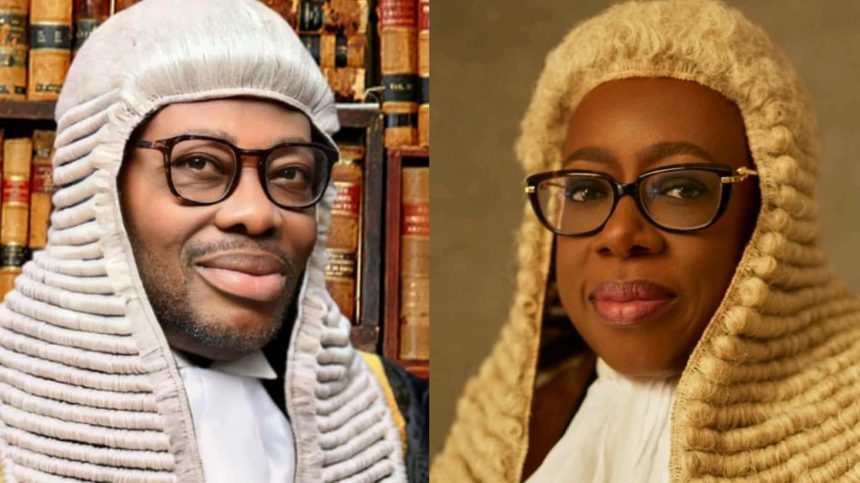BY MONDAY UBANI
CLARIFICATION ON THE POWERS OF THE ATTORNEY-GENERAL IN CRIMINAL PROSECUTION UNDER NIGERIAN LAW
Colleagues,
Let us be guided by the clear provisions of the law before making public statements on the powers of the Attorney-General (AG) in criminal prosecution.
The Constitution of the Federal Republic of Nigeria, 1999 (as amended) grants the AG wide prosecutorial powers no doubt. However the powers must be exercised in the public interest, in accordance with the rule of law, and without abuse.
Importantly, the word “shall” is used in the Constitution, signifying compulsory compliance with these standards.
1. Constitutional Provision
Section 211(1) of the 1999 Constitution provides that the State Attorney-General shall have power to:
(a) Institute and undertake criminal proceedings against any person before any court of law in Nigeria (other than a court-martial) in respect of any offence created by State law.
(b) Take over and continue any such criminal proceedings.
(c) Discontinue any such criminal proceedings at any stage before judgment is delivered (nolle prosequi).
Section 211(2) – These powers may be exercised by the AG personally or through officers of his department.
Section 211(3) – These powers shall be exercised to the exclusion of any other authority or person.
Section 174(3) (which applies mutatis mutandis to State AGs by virtue of Section 211) provides that:
“In exercising his powers under this section, the Attorney-General shall have regard to the public interest, the interest of justice and the need to prevent abuse of legal process.”
2. Judicial Authority – State v. Ilori (1983) 2 SC 155
In State v. Ilori, the Supreme Court held that:
The AG’s discretion to prosecute or not prosecute is quasi-judicial and ordinarily not subject to control by any person or authority.
Courts will not interfere except in very exceptional cases, such as where the AG has:
Acted in bad faith (mala fides),
Been influenced by corruption or fraud, or
Engaged in abuse of legal process.
Thus, while the discretion is extremely wide, it is not a carte blanche.
3. Is the Power Absolute?
No. The exclusivity under Section 211 does not translate into absolute, unreviewable authority because:
1. The AG is a public officer bound by:
Section 13 – to conform to and apply the provisions of Chapter II of the Constitution, and
Section 15(5) – to abolish all corrupt practices and abuse of power.
2. Section 174(3) expressly mandates that these powers must be exercised in public interest, in the interest of justice, and to prevent abuse of legal process.
3. State v. Ilori recognises that judicial review is possible if the AG’s discretion is exercised:
In bad faith,
For improper purposes, or
In a manner that amounts to abuse of process.
4. In practice, courts accord enormous deference to the AG’s discretion, but credible evidence of abuse can open the door to judicial intervention – albeit rarely.
Conclusion
Section 211 of the 1999 Constitution gives the State Attorney-General exclusive and wide prosecutorial powers. However, as clarified by Section 174(3) and the decision in State v. Ilori, this power is not absolute. It remains subject to the overarching principles of public interest, the interest of justice, and the prevention of abuse of process.
Let us therefore read the constitutional provisions in full and ground our public commentary in the law, avoiding misinformation or intimidation of those who offer well-reasoned legal opinions.
This statement is made without prejudice to the recent incidence involving the police and the AG of Anambra. There is no where in the constitution, the police is AUTHORISED to review the exercise of the powers of nolle by the AG. If there will be a review, it is only the JUDICIARY that will perform that responsibility and not the police. The attempt by the IG’s office to arrest or intimidate the AG of Anambra in the exercise of his constitutional powers is an aberration and a derogation of the grundnorm.
- Dr. Monday Ubani is a Senior Advocate of Nigeria and human rights activist
- The views expressed in this article are entirely those of the author and do not represent the opinion of CITY LAWYER or its publishers
____________________________________________________________________
(C) CITY LAWYER Magazine. All rights reserved. To join our Channel, click here. Click here to join our WhatsApp chatroom. Contact us at citylawyermag@gmail.com or 081-3838-0083


Leave a Reply
You must be logged in to post a comment.